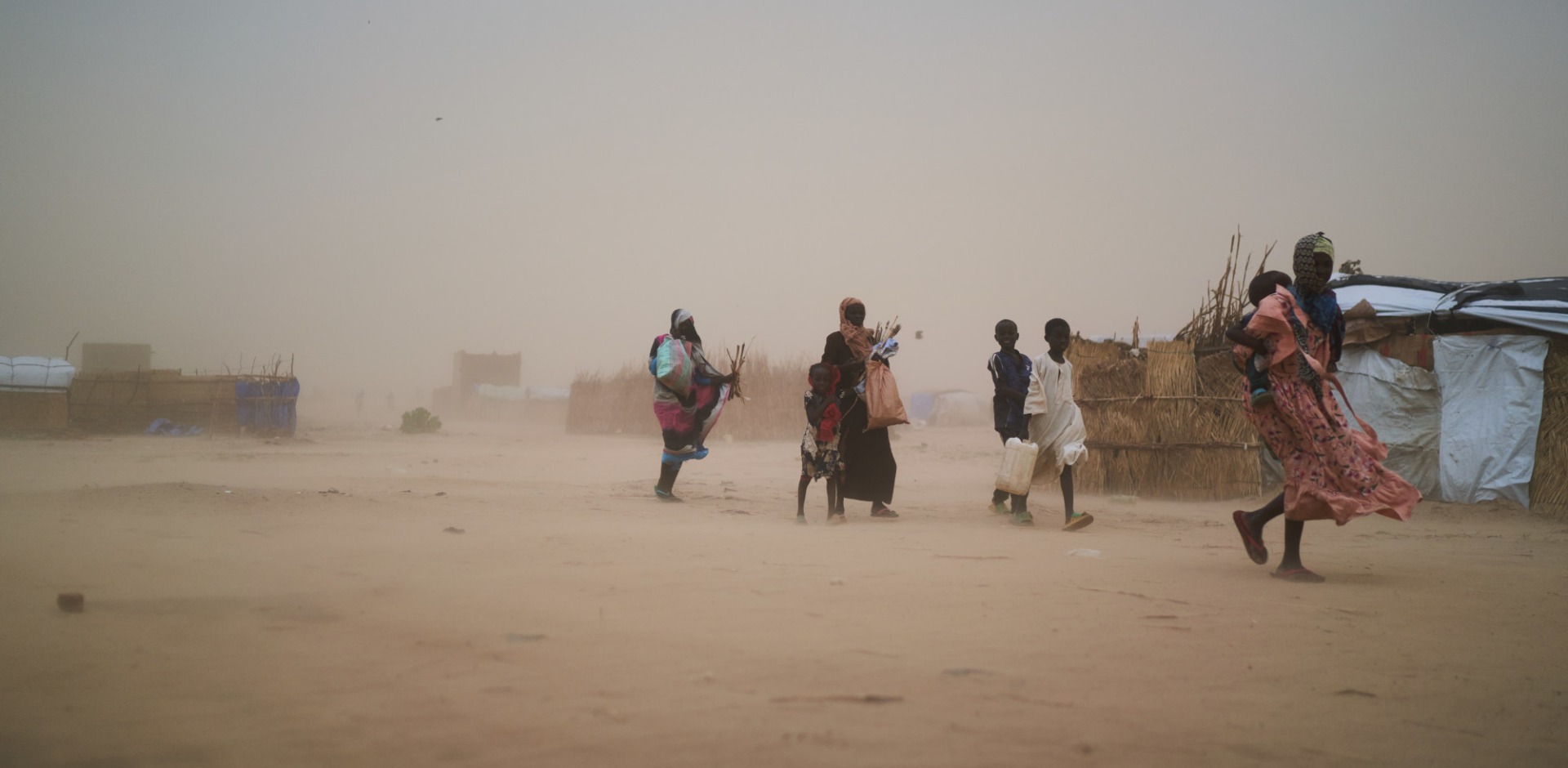
FAMINE IN SUDAN
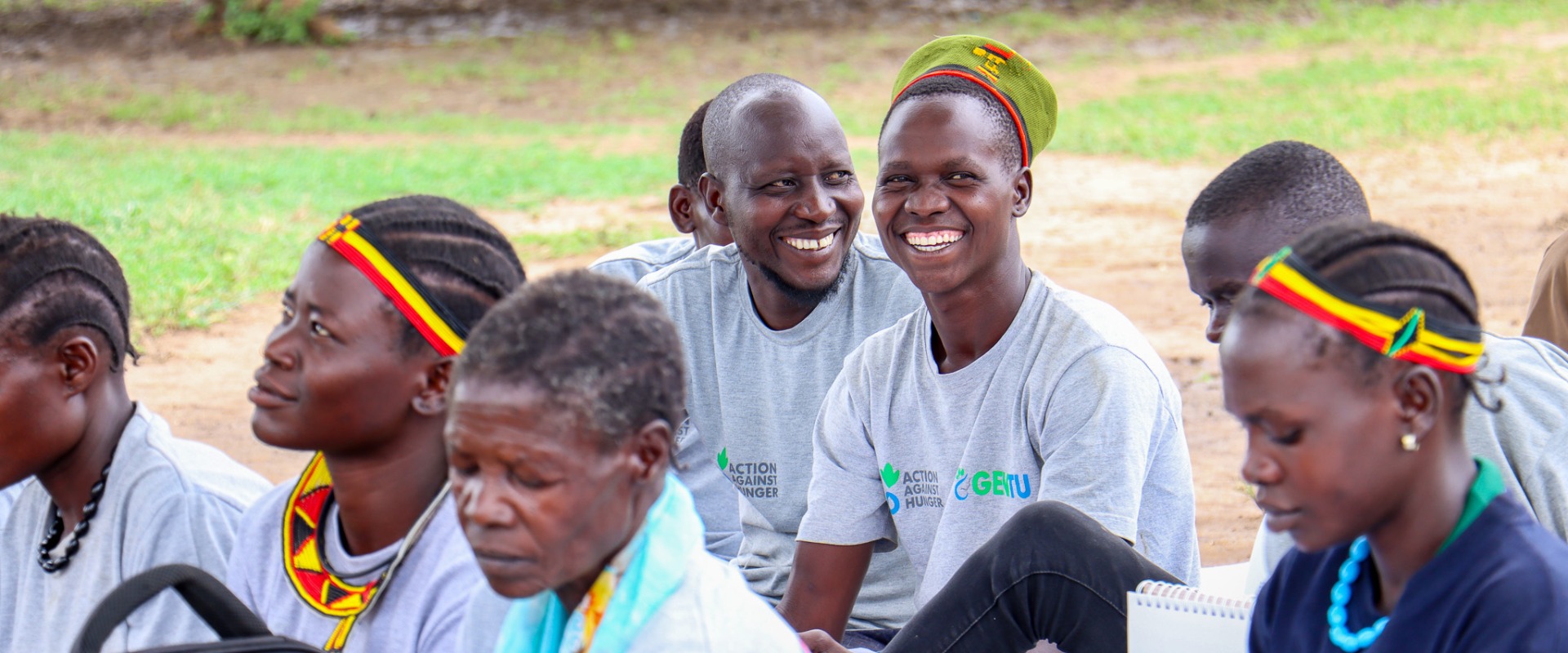
Written by Victor Akumu, Regional Communications Manager for Action Against Hunger Horn & Eastern Africa Region
The journey to Lokaale village in the Nakapiripirit district of Northern Uganda took us over two hours from our office in Moroto. We navigated dirt roads and crossed rivers without bridges, occasionally stopping to make phone calls to ensure we were on the right track. I was heading there to meet Longole Kalisto, a care group volunteer dismantling barriers in his village and beyond.
When we arrived at the village, we were welcomed by Aleo Justine Sarah, a community-based facilitator who informed us that we would have to wait a little longer to meet Longole, as he was attending a community nutrition training session organized by GENTU. Justine explained that biweekly meetings are held with Care Group Volunteers to train them on improving nutrition outcomes in their village.
“We train them mostly on food choices, enabling them to know which foods to eat based on their nutritional value,” said Justine. “Additionally, we have practical sessions on how best to prepare and combine foods for maximum nutritional value.”
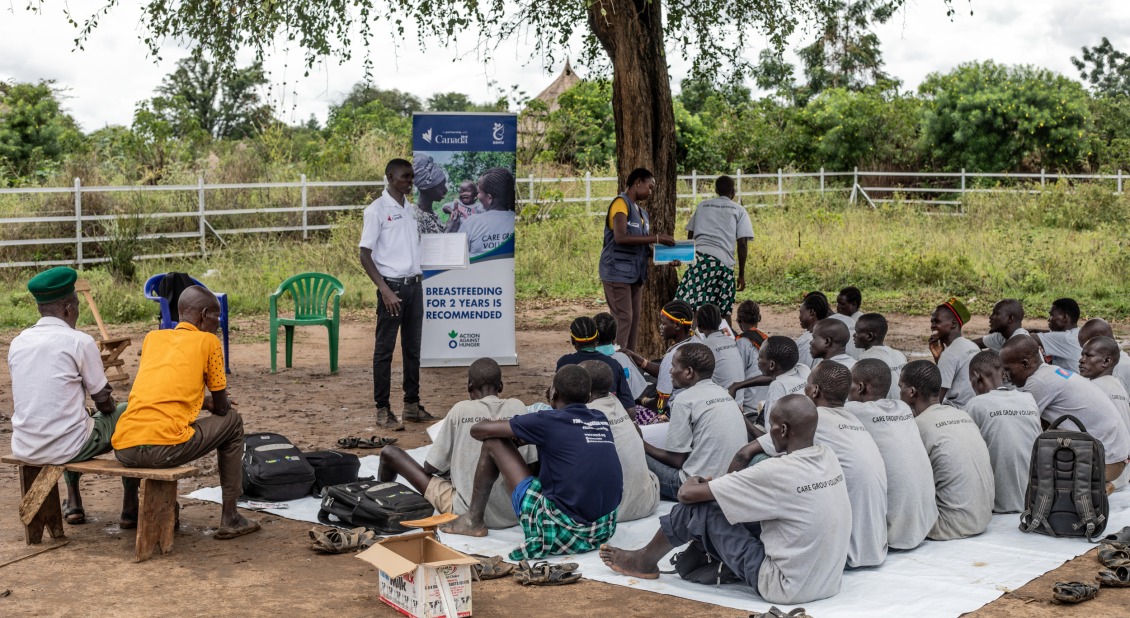
GENTU (Gender Equitable Nutrition in Tanzania and Uganda) is a project funded by Global Affairs Canada and implemented by Action Against Hunger Canada. The project aims to enhance and sustain nutrition outcomes for vulnerable groups, with a focus on involving men as a key approach to combat malnutrition.
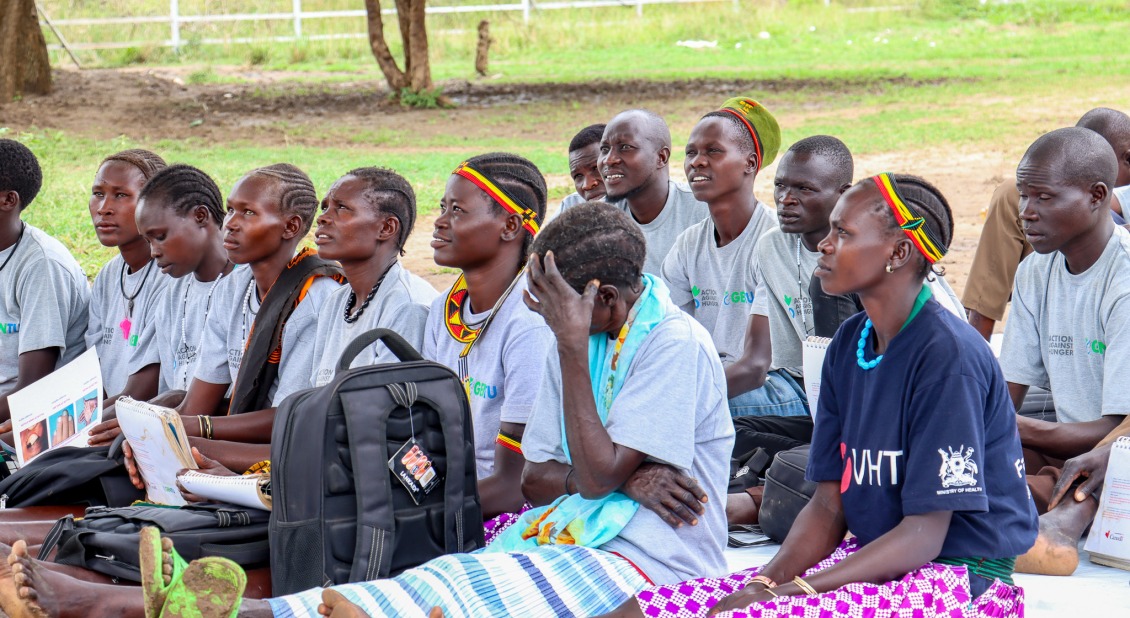
After the training, I finally met Longole Kalisto. He is of medium-built, exudes happiness, is in his early thirties, and commands respect from the community, something evident from his interactions with others. As we made small talk before the interview, he shared that today’s session was refresher on how to combine foods for maximum nutritional value and identify foods essential for preventing deficiency diseases like anemia, kwashiorkor, and scurvy.
When we sat down for the interview, I first asked him how he became part of the Care Group Volunteer; a role largely seen as feminine in this part of the world.
“I had no idea of the importance of nutrition until one day when a health worker told my wife that our baby had Severe Acute Malnutrition,” he explained. “I did not know what it meant but after making inquiries, I was told that our baby was not getting adequate nutrition and might die.”
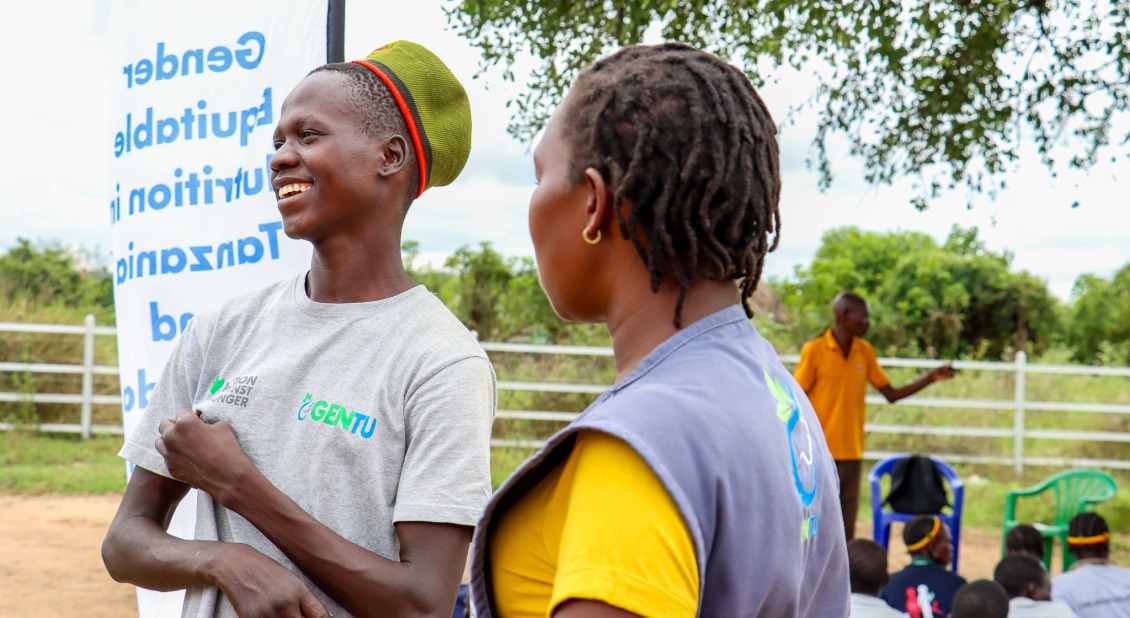
Saving his baby sparked Longole’s interest in nutrition. As luck would have it, a Community Based Facilitator working with GENTU was conducting a door-to-door sensitization campaign on nutrition in their village.
“My wife and I were mobilized and began attending community training on Nutrition,” he said. “At first it seemed awkward as the only male attending, but the knowledge I gained was key in saving my baby. I have slowly recruited other men in my village and today we have over 20 men as Care group Volunteers.”
Longole emphasized the critical role of male involvement in tackling malnutrition, pointing out that men often have the authority to implement nutritional practices at home. In some households, women might need their husband’s approval to make changes to food choices.
“I’m proud to advocate for involving men in the fight against malnutrition,” he said as our interview concluded.
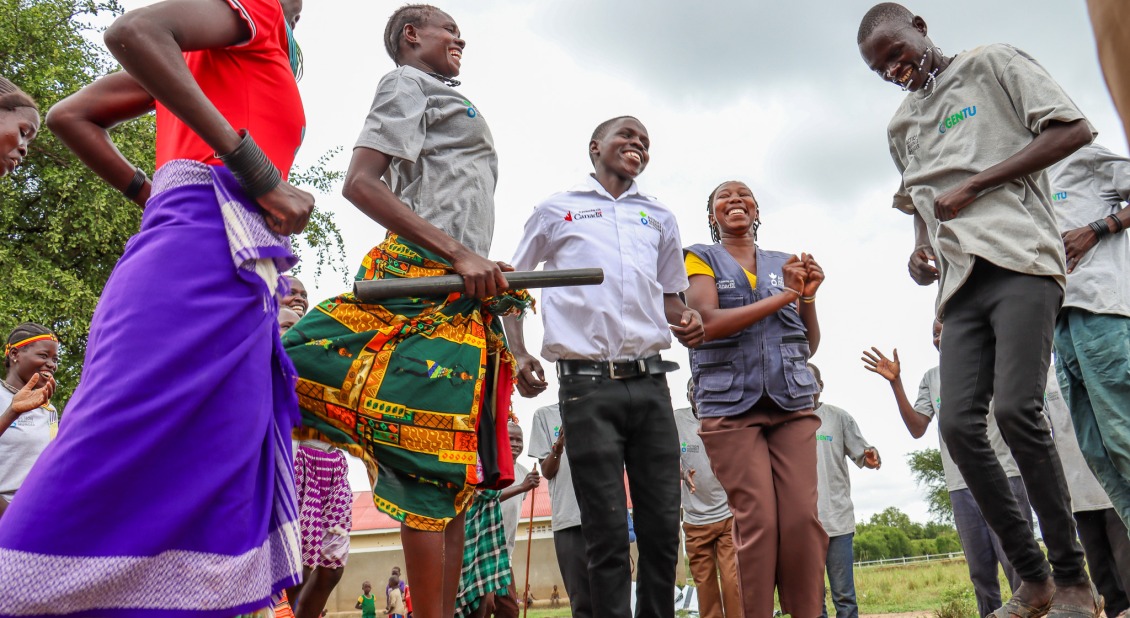
A short distance from Lokaale village, I visited the home of Lobur and Clara, a couple married for over 20 years. Mr. Lobur eagerly showed me their kitchen garden, a joint venture with his wife. “The GENTU team taught us the importance of growing nutritious foods like tomatoes, eggplant, cassava, and spinach. We transformed this unused space into a garden,” Lobur explained joyfully.
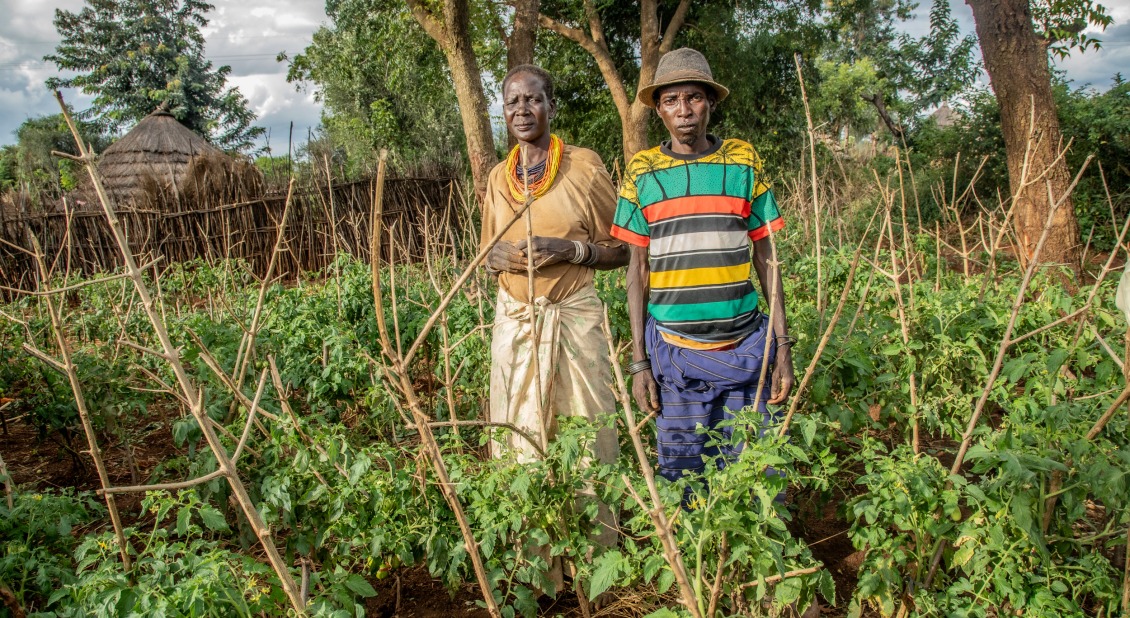
After chatting with them, they shared their plans to expand the garden, which not only feeds their family but also generates income by selling excess produce = to their neighbors. Clara expressed her pride in working alongside her husband, “Working together in this garden has strengthened our bond and improved our relationship.”
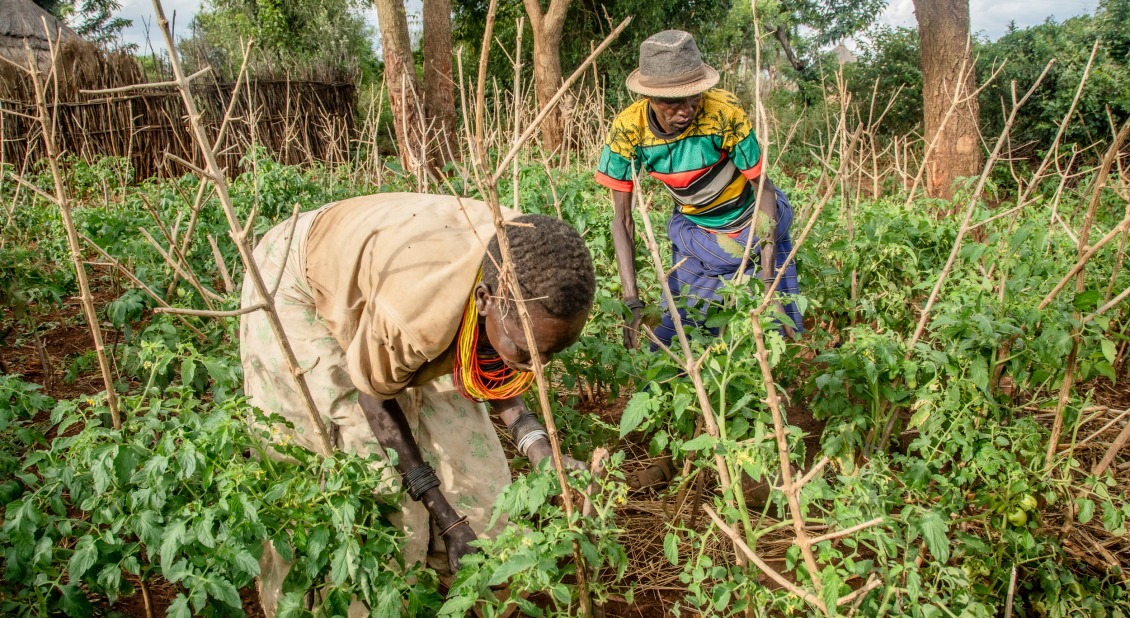
Mr. Magowe Joseph, the District Nutrition Focal for Nabilatuk District, where Lobur and Clara reside, is optimistic about GENTU’s approach.
“Men involvement in nutrition was the missing piece over the years. Now that they are engaged, I am confident that nutrition levels in the district will significantly improve.”
Victor Akumu is the Regional Communications Manager for Action Against Hunger
The Gender Equitable Nutrition in Tanzania and Uganda project, funded by Global Affairs Canada, seeks to address the disproportionate levels of undernutrition and malnutrition among women of reproductive age, pregnant and lactating women, adolescent girls, and children under five in the target districts of Bahi and Itigi in Tanzania and Moroto, Nakapiripirit, and Nabilatuk in Uganda.
 |
 |
|---|
Join our community of supporters passionate about ending world hunger.